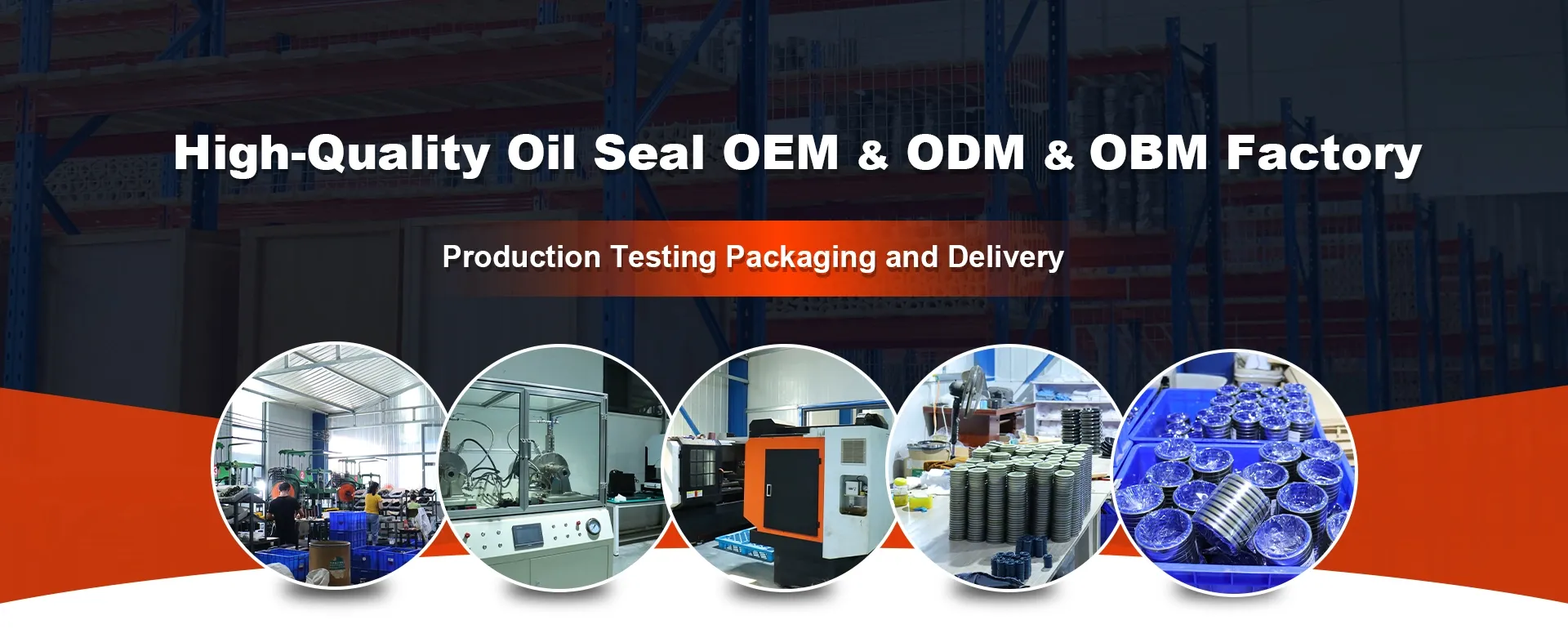វិច្ឆិកា . 23, 2024 19:57 Back to list
hydraulic oil seal
Understanding Hydraulic Oil Seals Importance, Types, and Applications
Hydraulic oil seals are crucial components in hydraulic systems, serving the essential function of preventing fluid leakage and ensuring the efficient operation of machinery. As industrial processes rely heavily on hydraulic equipment, understanding the significance, types, and applications of hydraulic oil seals becomes imperative for maintenance and design engineers alike.
Importance of Hydraulic Oil Seals
The primary role of hydraulic oil seals is to contain hydraulic fluids within the system while preventing external contaminants from entering. This containment is vital because hydraulic fluids are responsible for transmitting power in hydraulic systems, such as hydraulic presses, excavators, and forklifts. Any leakage can not only lead to loss of performance but also cause environmental hazards and increased maintenance costs.
Effective sealing contributes to the longevity of hydraulic systems by minimizing wear and tear on moving parts. Without proper sealing, the components of a hydraulic system can suffer from premature failure due to the ingress of dirt and moisture, which can corrode metal surfaces and degrade hydraulic fluid quality. Therefore, investing in high-quality hydraulic oil seals is crucial for maintaining operational efficiency and reducing downtime.
Types of Hydraulic Oil Seals
There are several types of hydraulic oil seals, each designed for specific applications and environmental conditions. The most common types include
1. Static Seals These seals are used in situations where there is no relative motion between the sealing surfaces. They can often be made from materials such as rubber or polymer.
2. Dynamic Seals Unlike static seals, dynamic seals are designed to withstand movement. They are commonly used in piston and rod applications, where the sealing element must flex and adapt to the movement. Materials for dynamic seals are typically selected based on the pressure and temperature conditions of the hydraulic system.
3. Lip Seals These are a common type of dynamic seal, featuring a flexible lip that makes contact with the moving part. Lip seals are suitable for both liquid and gas applications and are often made from elastomers like nitrile or fluorocarbon.
hydraulic oil seal

4. O-Rings Frequently used in static sealing applications, O-rings have a circular cross-section and are placed in a groove between two parts. They create a seal when compressed, suitable for low-pressure applications.
Applications of Hydraulic Oil Seals
Hydraulic oil seals find applications in a wide range of industries, including
- Construction Heavy machinery like excavators and bulldozers rely on hydraulic oil seals to maintain power transmission and efficiency. - Automotive Hydraulic systems in cars, such as braking systems and power steering, use seals to ensure safety and performance.
- Manufacturing Hydraulic presses and lifting equipment require reliable seals to protect the hydraulic fluid and maintain mechanical integrity.
- Aerospace In aircraft, hydraulic systems are crucial for controlling various functions, and thus the seals must adhere to strict safety and performance standards.
- Agriculture Agricultural machinery uses hydraulic systems for operations like plowing and lifting, where oil seals are essential for ensuring seamless performance.
Conclusion
In summary, hydraulic oil seals play a pivotal role in the effectiveness and reliability of hydraulic systems across various industries. Understanding the types, importance, and applications of these seals can lead to better maintenance practices and improved equipment performance. As technology and materials continue to evolve, the development of more efficient and durable hydraulic oil seals promises to enhance the productivity of hydraulic systems while ensuring safety and environmental protection. Therefore, selecting the right hydraulic oil seal is crucial for any organization looking to optimize their hydraulic equipment and processes.
-
The Trans-formative Journey of Wheel Hub Oil Seals
NewsJun.06,2025
-
Graphene-Enhanced Oil Seals: Revolutionizing High-Pressure Oil Sealing
NewsJun.06,2025
-
Future of Hydraulic Sealing: Advanced Intelligent TCN Oil Seals
NewsJun.06,2025
-
Don’t Let a Broken TCV Oil Seal Ruin Your Day
NewsJun.06,2025
-
Bio-Inspired Dust Seals for Better Sealing Performance
NewsJun.06,2025
-
Biodegradable and Sustainable Hydraulic Seal Materials
NewsJun.06,2025
-
Top Oil Seal Solutions for Your Industrial Needs
NewsMay.22,2025
Products categories
















